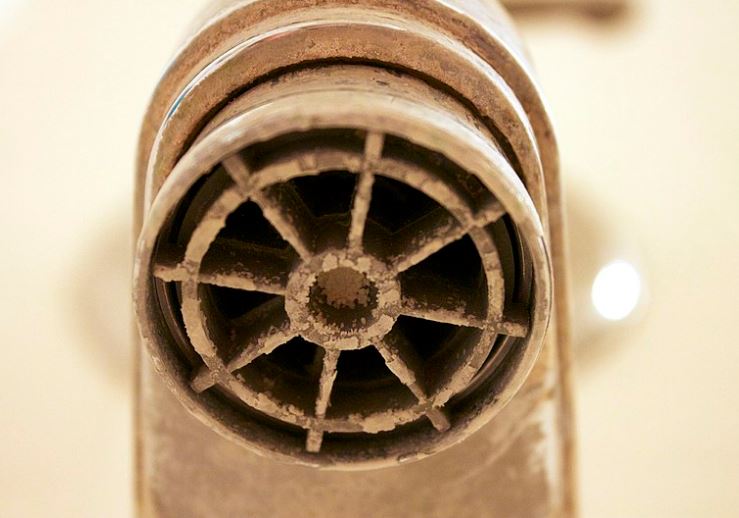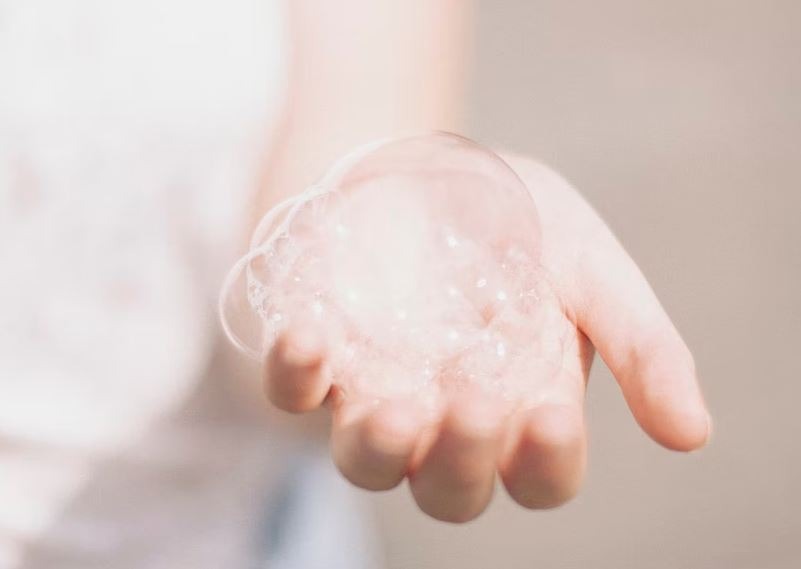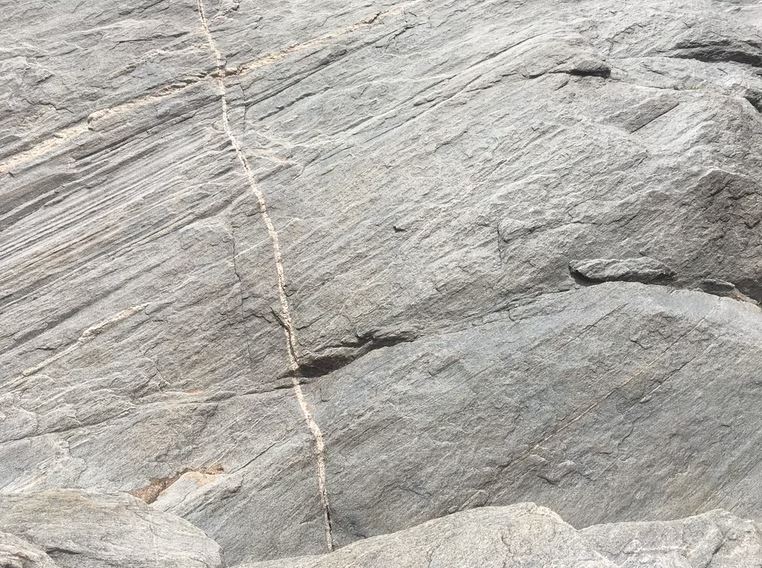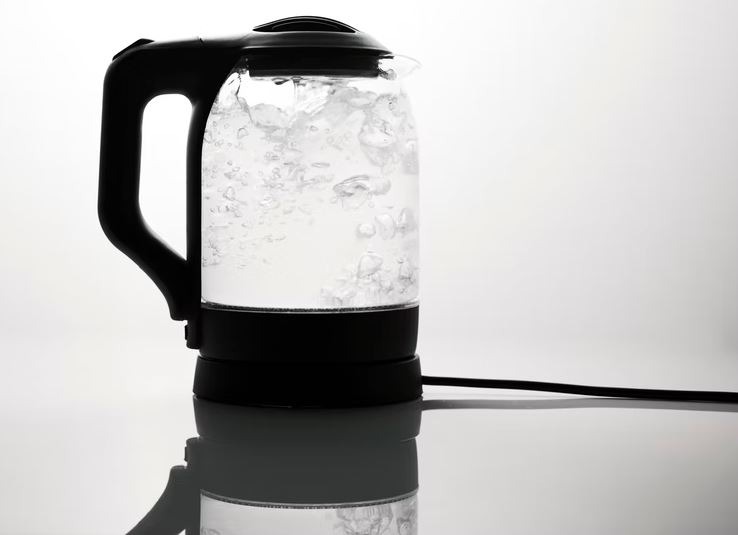There are often certain signs that something is wrong with your water. Sometimes these signs are subtle, and then over time, they become increasingly obvious. If there are stains on your bathtubs and your clean glassware has spots on them, then it may be because of hard water.
Hard water can be detrimental to your home as it can make it very difficult to use it to clean things, including yourself. Hard water can do a lot of damage to your body as well as to other items in the house such as doors, sinks, bathtubs, etc.
What is hard water?
Hard water is regular water that has a large number of dissolved minerals. These minerals mainly include calcium, magnesium, and maybe even iron. Usually, water is made of two hydrogen atoms and one oxygen atom. When these hydrogen and oxygen atoms form a bond with carbon dioxide, they form carbonic acid.
The carbonic acid is very weak, but when this water flows over limestone, it dissolves the minerals in it. Limestone contains alkaline minerals, which when held with water, increase the pH of the solution. Thus, hard water is created.
Signs of hard water
Most people are unsure whether or not they have hard water. However, some very telltale signs can indicate whether or not the water coming from your taps is hard water. Here are a few of those signs.
Scale build-up
Hardwater is the major cause of excessive scale build-up in homes. It also causes build-up and deposits in pipes and various appliances. This build-up is extremely detrimental for appliances, such as dishwashers that mainly work with water and reduce their life.
The scale that builds up as a result of hot water is usually white in color and tends to stick and not wash away easily.
Soap does not lather well
If you are having trouble lathering your soap, it may be the water causing the issue. When soap combines with hard water containing calcium and magnesium ions, the soap has a hard time building up a lather.
What really happens is that soap begins to soften the water, which is not its primary job. Therefore, it becomes sticky and sticks to things it comes in contact with. Therefore, you may find soap residue on your shower walls, dishes, clothes, and even skin. Those pesky spots on your glassware are also because of the soap.
Soft water is much more effective when it comes to cleaning as it takes half as much soap to clean, as compared to hard water. As soap softens water, the amount of soap you would normally use is used to soften up the water. Therefore, you need to use extra to get all the cleaning done.
Rust stains
Rust stains are also pretty common in homes. Hard water tends to cause rust to develop in sinks, tubs, and even toilets. Furthermore, hard water can also stain porcelain if used over a long period.
Soft water, on the other hand, does not leave stains and allows your home to stay clean and rust-free. It is also easy to clean with as it requires less soap as compared to hard water, which requires a lot of soap.
Dirty clothes
Soap is difficult to use in hard water as it has trouble building up a lather. The lack of lather is due to the soap combined with the calcium and magnesium, which leaves behind a film. You can probably find this film on anything you clean using hard water.
Furthermore, certain clothes may look dirty even after you have cleaned them. Towels start to lose their ability to absorb water, and the colors on your clothes may also start to fade. These effects are all due to hard water.
Soft water, on the other hand, has low mineral content. Therefore, there is less mineral to bind to the soap and less residue on the fibers of your clothing.
What causes hard water?
Hard water is caused when normal soft water is exposed to places where there is an excess of minerals, which combines with the hydrogen and oxygen of water to form hard water.
Hard water is formed when water flows through large deposits of limestone, gypsum, chalk, or other mineral reserves. These deposits in particular have large amounts of calcium, bicarbonates, sulfates, and magnesium carbonates.
When water flows through these deposits, they dissolve in water and cause serious problems when used in everyday tasks such as washing clothes or the shower. Although it is not directly harmful, hard water can be inconvenient in homes.
Health risks
Hard water, although an inconvenience, is technically not harmful to your health. In fact, drinking hard water may actually have some health benefits. Since hard water contains excess minerals such as calcium, iron, and magnesium, it may actually help you get in your daily mineral requirement and save you from the harmful effects of mineral deficiency.
However, if your water has high levels of these minerals, it would be wise to get it checked, as ingesting too much of such minerals can be damaging to your health.
Furthermore, hard water causes scaling in pipes, which can foster the growth of pathogenic bacteria. If you have a weak immune system, then these bacteria may cause infections and other potential diseases.
Hard water is also not great for those who like to maintain their hygiene as it affects it greatly. It can cause your hair to dull and lose its shininess. Furthermore, you may get a film of sticky soap on your skin as your soap may not lather well, and washing off the film may be quite difficult.
Additionally, if you have sensitive skin, the excess minerals in the water can cause itchiness and irritation on your skin. Young children can also develop skin diseases like eczema if their sensitive skin is constantly exposed to hard water.
Solutions for hard water
If you are certain that you have hard water issues, you can look into a few solutions to try and solve them. Here are solutions that you can try out.
Get a water test done
Before you jump to solve your hard water issue, you must know how hard your water is. To do so, you can schedule a water test. This test will determine the total amount of dissolved solids present in your water. When you know the amount, you can go about taking the appropriate measure to solve the issue.
Consult an expert
There are many different kinds of water treatment equipment available on the market, and it can get a little overwhelming if you do not know much about it. Thus, consulting an expert is the best way to go about it.
Water issues in houses are often more complicated than they seem. Therefore, you may not be equipped to handle anything that goes wrong. You should leave it to the professionals.
Install a water softener
If you need a quick and easy solution to your hard water problems at home, installing a water softener can greatly help reduce the hardness of your water. These softeners are made to remove minerals from water that may be causing the hardness. Most water softeners are designed to tackle minerals such as magnesium, iron, and calcium.
When choosing which water softener to buy, choose one that is fit to deal with the hardness of the water coming through your taps. A great tip is to attach the water softener directly to your water supply. That way the whole house will receive soft water.
Other steps you can take to deal with hard water
If you cannot get your hard water fixed, there are a few steps that you can take to minimize the effects it is having on you and your home.
Hard water greatly affects your appliances. Thus to maintain efficiency, you should descale your appliances. You should also aim to keep the temperature of your water below 60 degrees centigrade. If you use too much hot water, scale formation inclines.
You can also try to use a jug filter. Most water filters contain ion exchange resin beads, which can help reduce the scale formation in your kettle.
Hard water can often leave an unpleasant layer on your skin, which is often caused by the mixture of hard water and soap. To minimize it, add Dead Sea salts to your bath. These salts can help soften the water. It is also extremely beneficial for those who have skin issues and their skin gets irritated by hard water.
Conclusion
Hard water can be an extreme nuisance as it can make cleaning up extremely difficult. It is also known to cause skin irritation and other issues with clothes and pipes. However, hard water is not technically unsafe as it is simply water mixed with excess minerals like magnesium, calcium, and iron. There are many steps that you can take to reduce the effect of hard water on your appliances or to get rid of it altogether.




